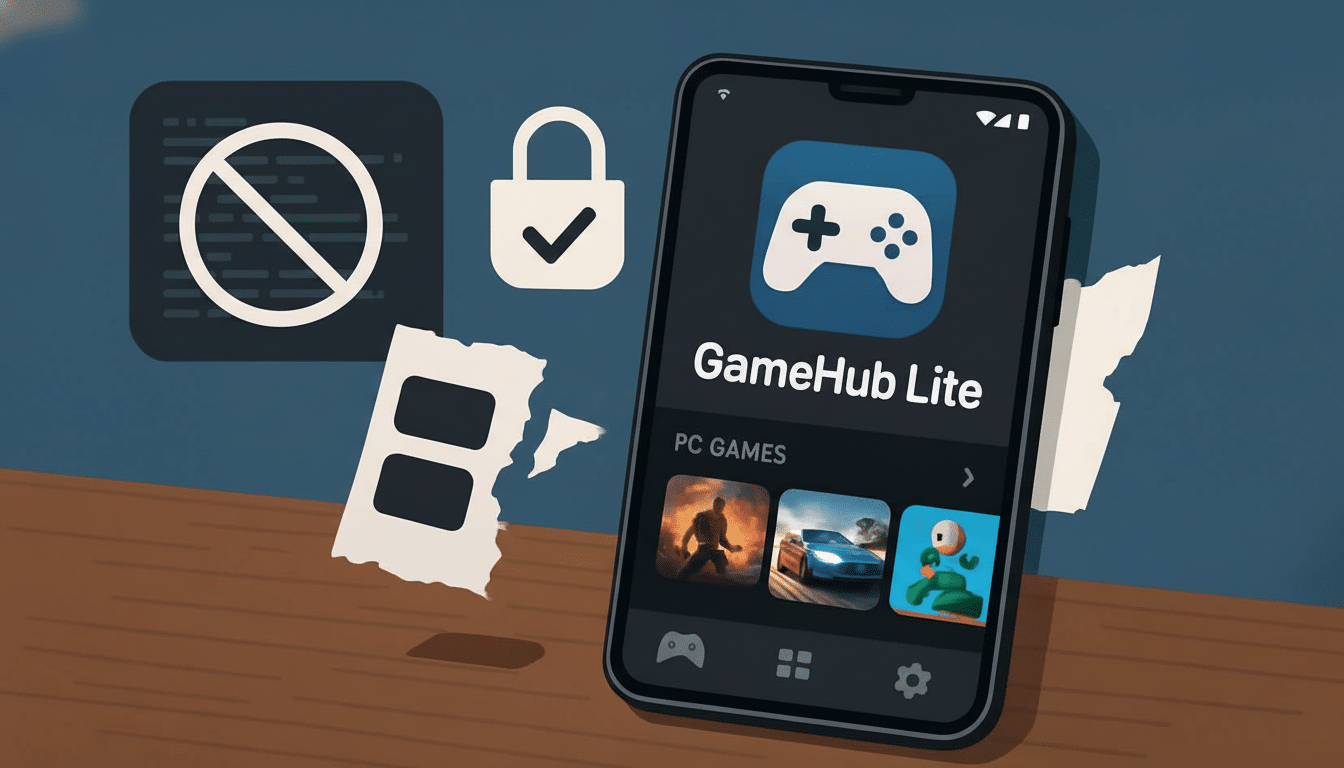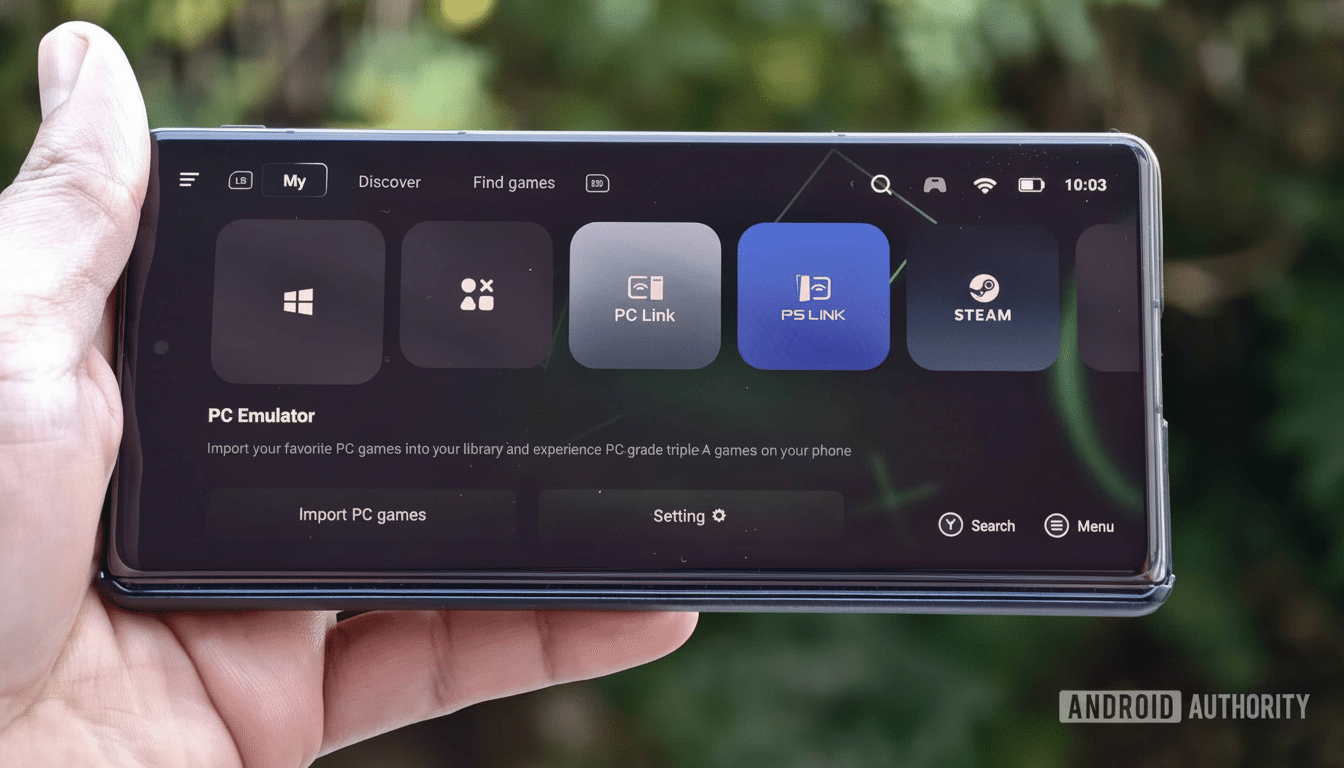A privacy-conscious GameHub PC emulator for Android is attracting attention from mobile gamers. The release, dubbed GameHub Lite, is built on reverse-engineered code that strips out intrusive permissions, in-app traceability, and mandatory login but retains the headline feature — playing PC games natively on your phone without needing an internet connection.
What GameHub Lite Changes in Tracking and Permissions
The GameHub Lite developer characterizes his own project as a “clean-room modification” that rips out the original app’s “tracking, authentication and bloat”. The team has stripped nearly 12,000 tracking and analytics files from the project notes. The result is a much leaner install: the app size, we’re told, reduces from around 114MB to approximately 51MB – and that’s before any optional components (such as GPU drivers or language packs) are added in.

Just as far-reaching is the permissions overhaul. GameHub Lite also eliminates 31 invasive permissions (like access to your contacts or system camera) that would be hard to explain in the case of an offline emulator. The need to log in is gone as well, which should alleviate one of the more common grievances that many users had with the original client’s gatekeeping and data collection approach.
Other quality-of-life improvements include image asset optimisations and the ability to launch externally from third-party front ends. Together, these changes move the emulator toward a simple, no-telemetry tool that emphasizes device independence.
Community scrutiny and early vetting of the release
The EmulationOnAndroid community has already had a cursory glance. Moderators there reported that they decompiled the Lite build and gave it a cursory look, giving so far a tentative thumbs-up to claims of removals. That’s not an official security audit, but it’s more due diligence than most modded apps get at launch.
Like with any reverse-engineered effort, you should be careful not to run something that is only signed by me and also check everything again at the official repo. Security researchers often caution about the risks of side-loaded APKs even if they are well-intentioned: provenance can be fuzzy and releases may not be reproducible.
Why trackers and app permissions matter for emulators
Many mobile apps ask for more access than they really need. Groups like Exodus Privacy and research from the University of Oxford have documented widespread third-party tracking in major apps, ranging from analytics SDKs to attribution frameworks. For an offline emulator, extensive data collection is even harder to motivate by a functional performance rationale.
Outside of philosophy, there are practical implications. By limiting permissions, you decrease the attack surface area and can minimize the impact of supply chain compromises or SDK flaws. Reducing telemetry also lessens bandwidth consumption and background processing, which may translate to better battery life and fewer performance stutters — useful enough benefits on devices already straining to match PC workloads.

The Business Backdrop, and Legal Gray Areas
GameHub is made by the controller manufacturer GameSir, which provides the emulator as a gratis complement to its hardware. While hardware sales represent a legitimate means of monetization, the extent to which data is collected by the original app raised suspicions. The company has come under scrutiny before for a separate emulator project the community developers said pilfered open-source code without proper licensing and attribution — drama that further reignited suspicion around its software initiatives.
There are complexities to reverse engineering as well. Although interoperability modding is popular in emulation, it may have different redistribution policies and require varied licensing and regional laws. Users, and even developers, must be mindful of this IP border and take care that redistributed binaries or patches may legally be redistributable.
So What Does This Mean for Android PC Gaming?
The quick success of GameHub Lite serves to emphasize a larger trend: fans now expect the same privacy controls on mobile that they do on desktop. Emulators, which frequently operate outside of app store ecosystems and cater to power users, are an obvious proving ground for that expectation.
If the community keeps vetting, and the project has transparent, repeatable builds, this could become my default recommendation for those interested in an offline PC emulator with low data exhaust.
For vendors, the message is just as loud and clear: Features alone don’t sell an app anymore — privacy posture, permission hygiene, and transparent telemetry practices are now table stakes.
For now, GameHub Lite is a more straightforward proposition: same essential functionality, less fuss. In a place where trust is won permission by permission, that may be the feature that matters more than any other.

